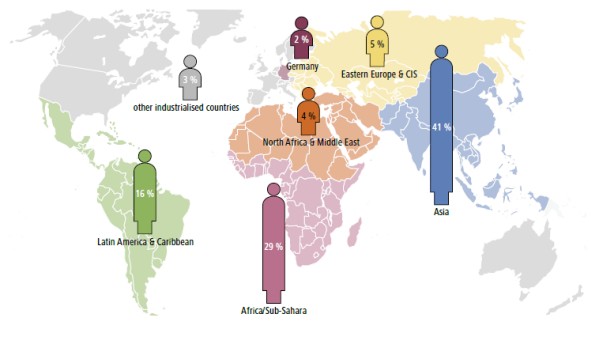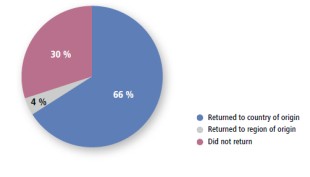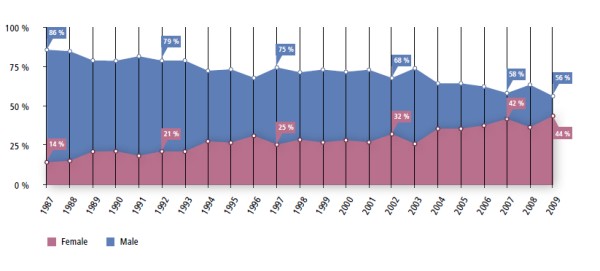How successful are graduates of the Development Related Postgraduate Courses programme after completing the programme? How many graduates return to their home countries? Has the percentage of female participants increased over the last 25 years? The results of three recent surveys, to be published soon, provide answers to these and other questions. The following is a review of the preliminary survey results:
In regular intervals, researchers at the University of Oldenburg surveyed graduates of the DAAD’s “Development Related Postgraduate Courses” programme in order to assess the impact of the programme on the careers of the international participants. The survey results are positive. Not only has the number of programme courses increased, but the number of women participating in the programme has increased as well. In a comparison of self-paying participants, DAAD scholarship holders, and scholarship holders funded by other organisations, the survey revealed that the DAAD alumni derived the most benefit from the programme.
Overview of the key conclusions:
- More than two-thirds of the alumni surveyed return to their home region after completing the programme and initiate change.
- 89 percent of alumni find employment in their home country following graduation.
- Following completion of the programme, more than two-thirds of DAAD alumni assume management/leadership positions.
- At the start of the programme, about 15 percent of the DAAD scholarship holders were women; today the figure is almost 50 percent.
Graduates of the programme benefit greatly from their studies in Germany, like alumnus Karina Marisol Guardado, who studied Photogrammetry and Geoinformatics in Stuttgart. “The time in Germany, and everything that I learned there was a boost for my career,” she says.
Networks for the future
Alumni benefit from the network they begin building while in Germany and continue developing afterwards together with fellow DAAD alumni. “My time in Germany was important not only in terms of my academic development; I was also able to establish a network of business contacts in Europe,” says Mohammad Kamruzzaman Kamrul, who today owns several textile companies in Bangladesh.
Change agents
The complete results of the three surveys can be found in the brochure “Knowledge – Action – Change”, which will be presented in Heidelberg on June 18th at the conference entitled “Change Agents – Gesichter des Wandels” hosted by the German Federal Ministry for Economic Cooperation and Development (BMZ) and the DAAD. University representatives, DAAD scholarship holders and experts will discuss challenges and best practices in the area of education/training for young professionals from developing countries. Federal Minister Dirk Niebel and DAAD President Margret Wintermantel will talk about their organisations’ respective concepts for development cooperation.
The brochure will be published in German and English. It can be ordered through the DAAD and will be available soon for download on the DAAD website.








